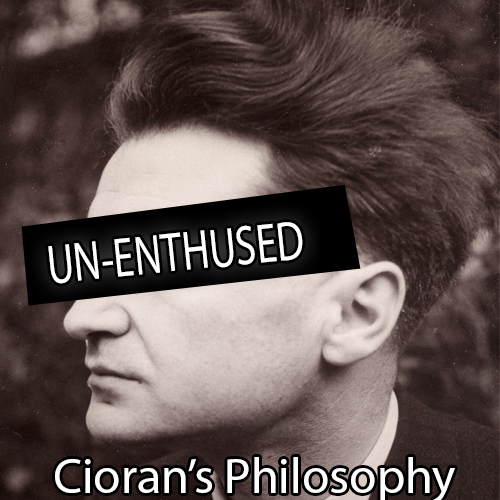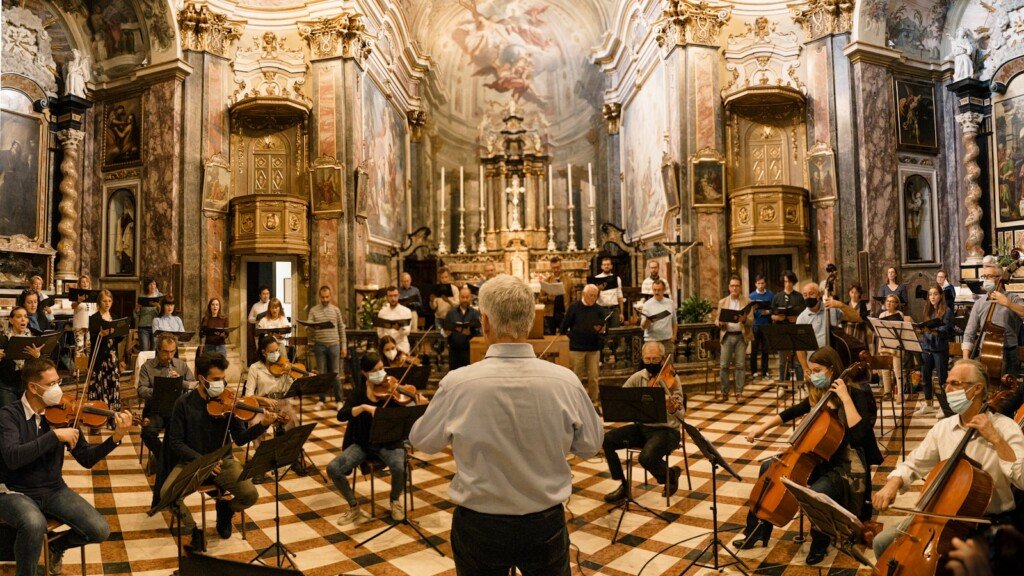
Emil Cioran has become the face of despair, lament, nihilism and everything equally dour. Today I’ll give you the basic rundown as to why myself, as well as many others come to find that to be true.
Please note, this article has affiliate links, If you purchase anything on the blog, it greatly supports me and allows me to continue to write articles to share information.
How It Feels Reading Cioran
The Influence of Emil Cioran.
Emil Cioran, a Romanian philosopher and essayist, is known exceptionally well for his profound influence on existentialism and nihilism.
His works, including “The Trouble with Being Born“ and “The Temptation to Exist,” plunge everyone far deeper into the depths of human existence than any other author at his time.
Emil Cioran is about to pull us into a cold, dank and somehow comforting world of darkness with how he so quickly, brutally, and effortlessly embroiders his writing with boldness.
Most of his works are grappling with themes of despair, absurdity, and the futility of life while giving us a reminder that we are holding the little light that can lead us through all of these arenas.
As a result of such impactful literary prowess, Cioran’s writing on the existential and nihilistic nature of the world are heavily referenced today.
Let’s take a sit back, relax and take a second to appreciate a little bit of what he has written for us.
Exploring Nihilism and Existential Philosophy in Cioran’s Works
Cioran’s exploration of nihilism and existential philosophy is deeply rooted in his own experiences and observations of the human condition.
We can imagine it’s easy to write out our somber thoughts and rage into a journal.
Where Cioran shines is that he has eloquently and expertly expanded on these thoughts in an innumerable series of ways throughout his works.
In “The Trouble with Being Born,” (my first and favorite of his works) he confronts the inherent absurdity of life, questioning the very act of existence and the relentless pursuit of meaning in a world devoid of inherent purpose.
His poignant reflections on the human predicament resonate with a sense of hopelessness, inviting us all to confront the unsettling realities of our darkest thoughts all the way throughout their logical ends.
This isn’t to say that he wishing we would all tear each other down and commit mass destruction in the name of ridding the world of our futility, nor does he embark on a train of thought that we should all take an end to our own troubles.
Rather he highlights some points in which individuals undergoing a period of existential curiosity will naturally gravitate towards.
However; Cioran isn’t a one-hit wonder when it comes to bleak and powerful writing.
“The Temptation to Exist“ further delves into Cioran’s profound contemplations on the nature of existence, plunging right into the paradoxical allure of life despite its inherent meaninglessness.
Through his eloquent prose, Cioran challenges conventional notions of purpose and meaning, offering a stark portrayal of the human struggle against the backdrop of an indifferent universe.
Cioran’s contribution to existentialism and nihilism extends far beyond the realm of philosophy.
His unflinching critique of human existence and the disillusionment that accompanies it has reverberated across generations, inspiring a reevaluation of traditional philosophical frameworks.
By dismantling the illusions of meaning and purpose, Cioran challenges us to confront the stark realities of the world we live in.
Much like Camus’ writings on the matter, he posits that we can’t imagine that there is some sort of “Real” purpose, just that we are here, we go about a life in which we have not a singular known “Why” and we continue until our end.
His profound insights into the human psyche and the existential angst that permeates our lives underscore the enduring relevance of his philosophical inquiries far past his timeline of existence.
Again much like Camus, the works E.M. Cioran has carved out seem to lead us towards a conclusion of embracing the absurdity of life with a newfound sense of liberation.
Given the similarities of the two, I figure it would be best to compare their central points to an author everyone is likely more familiar with.
Cioran’s influence on existential thought is clearly evident in his dramatically sharp examination of the human experience, shedding light on the intrinsic anxieties and uncertainties that define our existence.
Almost ALL of his works serve as a poignant reminder of the fragility of human consciousness and the relentless pursuit of meaning in a world fraught with existential dilemmas.
While Cioran’s impact on nihilism is equally significant, as he pushes into the depths of despair and disillusionment with unwavering precision. He holds back NO punches.
His philosophical treatises challenge the prevailing notions of optimism and purpose, offering a compelling portrayal of the human condition stripped of comforting illusions.
This raw and unrelenting series of back and forwards can offer a comforting level of understanding in our most delicate hours and provide a sense of understanding.
Through his incisive analysis of nihilism, Cioran wants us to confront the void at the core of our being and to embrace the raw authenticity of our own flawed existence.
Cioran’s Perspectives on the Flaws of Human Existence

Emil Cioran’s philosophical explorations extend even beyond the realms of nihilism and existentialism, as he also scrutinizes the inherent flaws and contradictions of the human condition.
In his work “The Fall into Time,” Cioran delves into the notion of human progress, challenging the prevailing belief that humanity is on a linear path of advancement and improvement.
He argues that our obsession with progress is itself a manifestation of our deep-seated dissatisfaction with the present, a futile attempt to escape the fundamental shortcomings of our existence.
While typically we know to avoid a hedonistic nature, we can take a step back and examine things rationally to avoid excessive pleasure.
However; sometimes an additional set of eyes on a situation is refreshing.
Seeing a seemingly valid criticism of things that are can provide us with a healthy reset.
Cioran’s critique of human progress is rooted in his understanding of the innate restlessness and dissatisfaction that plague the human psyche.
He emphasizes that our constant striving for self-improvement, for the attainment of a better future, is ultimately a manifestation of our inability to fully embrace the present moment.
He lays out that this relentless pursuit of progress only serves to exacerbate our sense of alienation and disillusionment, as we are perpetually caught in a cycle of unfulfilled desires and unmet expectations from the world.
The Fall into time has some heavily stark points and if you can get a copy of the book, congratulations!
Finding a PDF online is usually one of few ways to get ahead of this work in any medium, but it is truly a look into dissatisfaction that wouldn’t be so bold until something like “Fight Club” would come out and take an ultimate dig at self-improvement.
The Brilliance of Cioran’s Philosophical Oeuvre

Finding The Beauty and Brilliance
Cioran’s writings are loved not only for their deep insights but also for their poetic elegance and literary prowess. His use of language is both precise and evocative, it calls out to you, and brings every person into the depths of his philosophical contemplations.
For example, in “On the Heights of Despair,” Cioran’s lyricism shines through as he grapples with the existential questions that have burdened humanity throughout the ages.
He has a way of stating things in a manner which feel less like an alienated thought, but something that we all think and feel, but tend to stray from in conversation.
The beauty of Emil Cioran’s prose lies in its ability to capture the nuances of our thoughts and emotions, the fragility and complexity of the human psyche.
His words resonate with a startling honesty, shedding light on the darkest corners of our being.
Through his masterful use of language, Cioran elevates his points expertly, transforming a simple observation into a profound artistic expression of the human struggle.
Emil Cioran‘s Relevance Today “Why He’s STILL important”

Emil Cioran’s Work Today
Emil Cioran gave us an absolutely uncompromising examination of the human condition.
Bar nothing, He didn’t care to lose understanding from others or face criticism.
Whatever anyone would label him or dish out, what was more important was being understood correctly. His unwavering commitment to confronting the harsh realities of existence is still something we do to date.
Undoubtedly, he has continued to captivate and challenge anyone who comes across his books.
across generations, inspiring deep introspection and a renewed engagement with the fundamental questions of human existence.
Whether he does so with a simple reduction of life into inherent meaningless, or by providing a glimmer of hope, he reminds us of our mortality brilliantly.
Today, Cioran’s writings continue to be studied and discussed, serving as a constant reminder of the necessity to confront the underlying truths of the human condition and take a new lens.
In a world that often seeks to distract and numb us from the harsh realities of existence by any means necessary, Cioran’s works stand as a clarion call to embrace the full depth and complexity of living life.
His books and writings encourage us to confront our deepest fears, to look within, examine life in it’s glimmering hope, murky waters and, bleaker undertones. Cioran wants anyone to who reads what he’s written to grapple with the profound questions that haunt our existence, and to find meaning in the very absence of meaning.
Through Cioran’s profound insights, we are invited to engage in a perpetual dialogue with the mysteries of living, and with some clarity provided by his honesty, to find solace in the shared experience of our struggle.
If you are in the mood for something deeply brooding and to help you feel understood, Emil Cioran is a name I think you’ll find of deep comfort reading.
I know I have.



![By E. M. Cioran - The Fall into Time (1905-06-07) [Hardcover]](https://m.media-amazon.com/images/I/21dT9xH+WBL.jpg)
